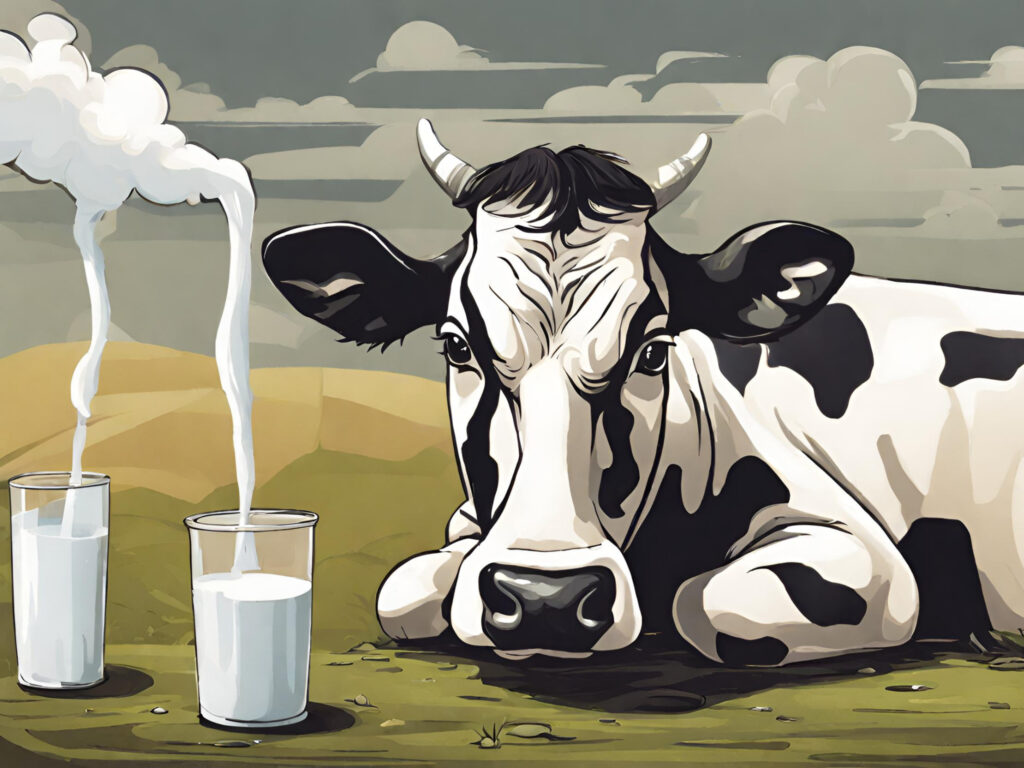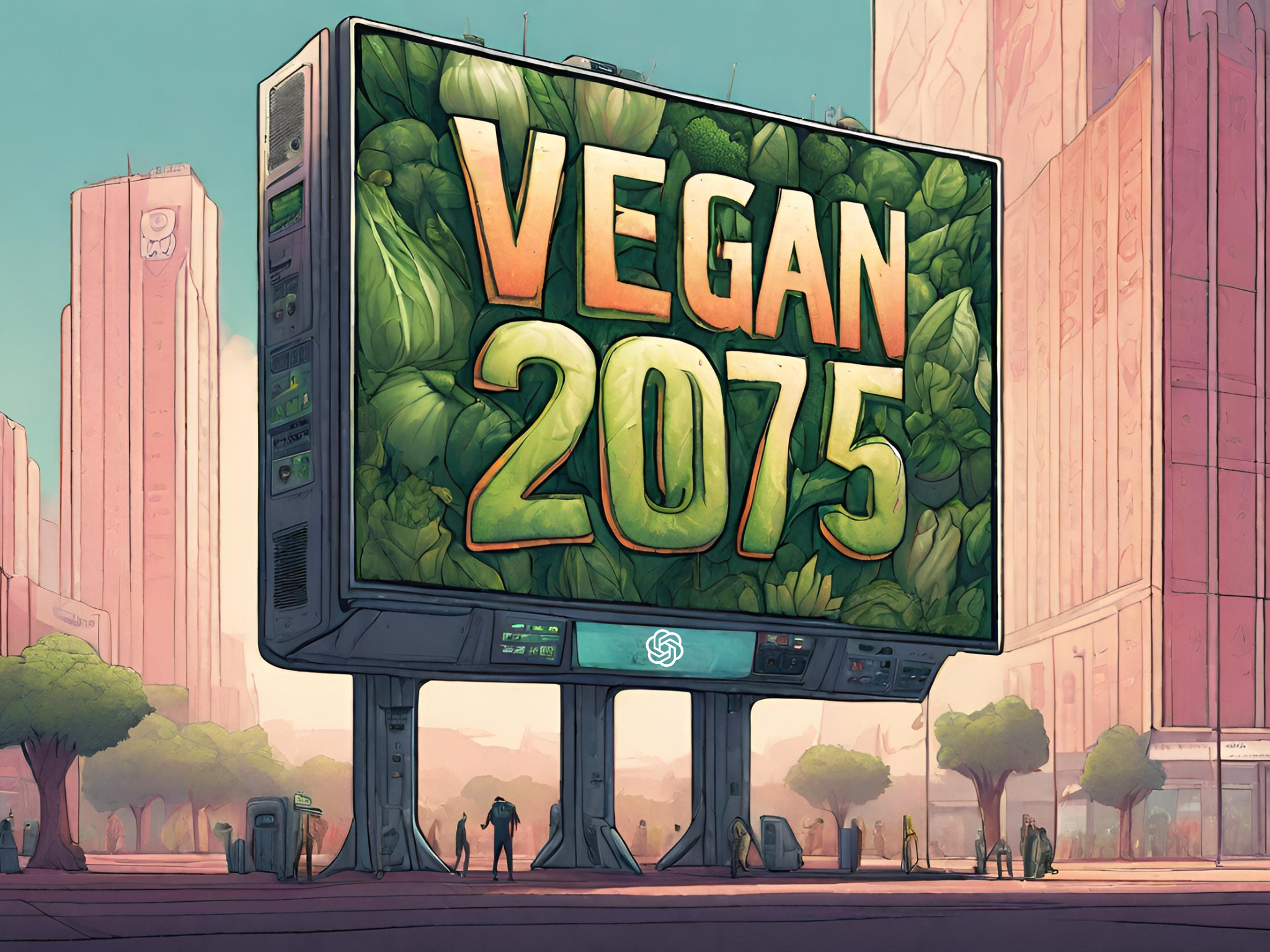6 Mins Read
Open AI’s artificial intelligence system ChatGPT has predicted that the world will go almost entirely vegan by 2073, two years after which the animal agriculture industry becomes obsolete. It was based on a prompt by the Daily Mail, which input data from a recent NPD Group survey to elicit the results.
Did you take ChatGPT for a fortune teller? Because I didn’t.
But that’s exactly what the Daily Mail has done, turning Open AI’s viral chatbot into a trend forecaster. Using data from a recent Future of Food report by the NPD Group, which conducted a study about Gen Z and millennials sparking a movement that could lead to an all-vegan world in the future, the British newspaper asked ChatGPT to create a timeline of events that could lead to a plant-forward planet.
“As consumers continue to prepare more meals in the home and younger generations cook more, plant-based foods and ingredients will be a part of their repertoire,” says Darren Seifer, a food industry analyst at NPD, and co-author of the study.
“In addition to providing a variety of plant-based foods and ingredients, food manufacturers should also focus efforts on Millennials and Gen Zs since they will be driving the category’s growth. Their concerns for sustainability and animal welfare should also be taken into account when messaging them.”
The prompt the Mail used was: “Provide a timeline of the world going vegan starting in 2024 when Gen Z and millennials raise awareness on animal agriculture.”
Here’s the vegan timeline ChatGPT came up with:
2024-2030

As Gen Zers and millennials continue to raise awareness about the environmental, ethical and health issues linked to livestock farming, flexitarianism will become more widespread by 2027. By 2028, major food tech companies will have released more varied plant-based meat options, which will become more affordable and widely available as alt-protein investment increases.
A year later, vegan diets will be growing in Europe and North America. Some countries and regions will then introduce policies and incentives to promote plant-based eating and reduce meat consumption by 2030.
2030-2040
In 2032, ChatGPT predicts a breakthrough in food tech will lead to even more affordable and convincing meat and dairy analogues, aided by increased adoption of plant-based food and reduced meat consumption, particularly among younger generations and in urban areas.
Around this time, some areas will witness a decline in traditional livestock farming, while cultivated meat (which isn’t vegan but similarly sustainable) and other alternative proteins will become more accessible and ingrained into the mainstream food supply.
In 2037, there will be a legislative breakthrough, with North American and European governments implementing subsidies for plant-based agriculture – which would be significant considering that currently, the livestock industry receives 800 and 1,200 times more funding than alt-protein in the two regions, respectively. In Europe, 50% of farmer incomes currently come from direct subsidies.
2040-2055

Vegan diets will spread across a border cross-section of the population in this period, as many begin reducing their meat and dairy intake. And even more governments begin implementing policies to address the climate impact of animal agriculture and promote a shift towards a planet-friendly food system.
The AI chatbot predicts that 2048 will see the first Climate Action and Veganism Day be celebrated (World Vegan Month is currently celebrated on November 1, also the start of World Vegan Month). This event will be endorsed by the likes of Leonardo DiCaprio and Natalie Portman, who will be 74 and 67, respectively.
But despite traditional meat consumption falling significantly, plant-based diets will still be a minority in some regions.
2055-2075
A longer time period, the next 20 years will bring a lot of developments. In 2057, veganism will become “widely accepted and normalized in many parts of the world”, with athletes like Lewis Hamilton (who is already vegan) and Selena Gomez (currently following a plant-forward diet) pushing to make the lifestyle mainstream in 2059 – they will then by 74 and 78, respectively.
ChatGPT forecasts 2064 to be the first year when Global Vegan Week will become an international event, and four years later, the world’s current largest fast-food chain, McDonald’s, will “reintroduce the McVegan” (it currently offers a plant-based McPlant burger) as part of a wider shift towards a fully vegan menu. The company has pledged to have net-zero emissions by 2050, though its climate footprint has been going in the opposite direction in the last few years.
By 2070, most of the younger generation will have up with plant-based diets as the norm and played a dominant hand in shaping a “predominantly vegan world”. And it’s by 2073 that the AI tool predicts the world will almost go entirely vegan, before the traditional animal agriculture sector – which would have undergone a transformation toward more sustainable and ethical practices, and become a niche industry already – becomes obsolete in 2075.
At this point, meat consumption will be “a rare and special occasion in some cultures”.
Is ChatGPT right about veganism?

ChatGPT stressed that this is all purely speculative, as “it’s impossible to predict the future with certainty” and “the actual timeline may vary widely by region and culture”. It’s best to take this all with a grain of salt, of course. And here’s why.
When Green Queen put the same prompt forward to the chatbot (albeit without the knowledge of the NPD Group report), it reported similar predictions, but at a much more accelerated pace – for example, the points about animal agriculture becoming more sustainable and ethical and veganism being the mainstream choice are made in a timeline between 2036-2040.
Even when prompted to provide a timeline through 2075, the developments differ in timescales and events between these two predictions – for example, it says “celebrities, influencers, and public figures embrace veganism and advocate for sustainable living” in the 2030-2040 period.
Here’s another reason why AI chatbots may not be your go-to fortune tellers. Green Queen asked ChatGPT to provide a similar timeline, but one where meat consumption grows as the same two generations “raise awareness about sustainable animal agriculture”. Lo and behold, it came up with a timeline through to 2075 where governments prioritise green livestock farming practices, with a ‘conscious carnivore’ movement appearing and cultivated and plant-based meat part of a balanced diet with these, rather than being the norm.
So it seems ChatGPT may predict whatever you want it to – which kind of defeats the purpose. But it’s a fun exercise, and the way things are going, this latter forecast might be the one that actually comes true. The chatbot, though, is right about one thing: its nearest prediction, the rise of flexitarianism. As for the rest, let’s wait for 74-year-old Jack Dawson.



